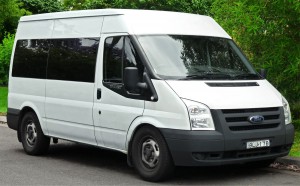The Ford Transit is a range of light commercial vehicle, produced by the American multinational automaker headquartered in Dearborn, Michigan, which sells automobiles and commercial vehicles under the Ford brand and most luxury cars under the Lincoln brand.
Methods for large-scale manufacturing & management of cars were introduced by Ford using elaborately engineered manufacturing sequences.
A new nose and dashboard was given to the Transit as a major facelift in 1994, and the Ford Transit Engine featured a 2.0 L DOHC 8-valve as found in the 1994 to 1998 Ford Scorpio. It is similar to the earlier Sierra DOHC unit except the distributor and uses the updated OBD II-compliant EEC-V level engine control unit. Ford’s 16-valve engines generally those found in the Scorpio, Escort RS2000 and Galaxy were also based on this similar technology. Optional extras included- air conditioning, electric windows, central locking, electric mirrors and airbags.
The Reconditioned Ford turbo diesel version came in 85 PS (63 kW), 100 PS (74 kW) and 115 PS (85 kW) version with a fuel pump which was electronic.
On the Transit’s 30th anniversary in 1995, Ford released a limited edition model called the Transit Hallmark. Six hundred were made and were available in three colours with 200 being made in each year. The VE83 Transit was available in Europe up to 2000, but in Vietnam it was built up to 2003 after which it was exchanged in June for the new generation technology.

The Transit’s Fourth generation, received a facelift to the body, introduced in August 2006, which included new front and rear lights, a new front end and a new decor featuring the gearstick on the dashboard and Ford’s new corporate radio design. Moreover, along with the style changes, the powertrains were revised. The old Transit Engine was replaced with one from the Ford Ranger, the front-wheel-drive diesel went from 2.0 to 2.2 litres capacity, and all diesel engines gained high-pressure common rail (TDCi) systems.
Reconditioned Ford Transit engines have become pretty popular in the engine replacement market and one of its biggest benefits is its affordability in comparison to a brand new engine. The quality aspect is not compromised as it is refurbished closer to its original new condition. Instead of discarding the old Ford Transit Engine, reconditioning is the best option to look for. Apart from reconditioned engines, the faulty engine can be replaced with used ones. The used engines are somewhat similar to reconditioned engines. Inspection is at a more superficial level however.
MKL Motors offers Ford Transit Reconditioned Engines for sale. All our Ford Transit Engines are supplied with quality in mind and a customer service experience to match.








